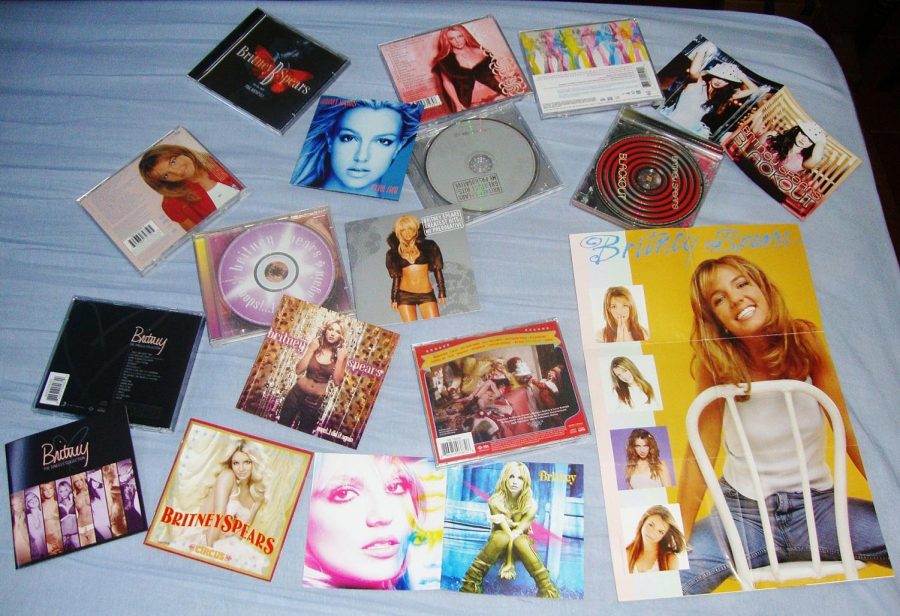Column: The #FreeBritney movement puts her life under scrutiny
March 31, 2021
Since the beginning of her career, American pop star Britney Spears has been the subject of inappropriate speculation, jokes and criticism. Rising to fame at the age of just 16, she not only dealt with all the typical teenage struggles, but experienced all of them in the spotlight of a nation.
Spears’ burgeoning sexuality garnered much criticism as she shed her wholesome, girl-next-door image. At just 21, she was questioned about her virginity and criticized so much for her “bad influence” that Maryland’s first lady said, “If I had the opportunity to shoot Britney Spears, I think I would.” These comments came to light in a now heavily criticized interview with Diane Sawyer.
In the midst of an intense custody battle over her young children and being followed constantly by aggressive paparazzi, Spears shaved her head — resulting in over a decade of jokes about mental breakdowns.
These discussions returned to the forefront of our celebrity conversations through the #FreeBritney movement. Spears has been under permanent conservatorship since October 2008, with her estate and personal freedoms under the control of her father Jamie Spears.
Conservatorships are intended as guardianships for adults who are deemed incapable of managing themselves or their money. With Spears’ time in drug rehabilitation programs, attacks on paparazzi and other struggles with mental health, her father subsequently established a conservatorship.
However, whether Spears’ conservatorship is justified has long been a topic of debate among both her lawyers and her fans.
Beginning in November 2017, comedians Tess Barker and Barbara Gray began the Britney’s Gram podcast, where they analyzed Spears’ Instagram posts for hidden meanings. The two later released an “emergency” episode in April 2019 upon receiving an anonymous call that was supposedly from an ex-paralegal on Spears’ team.
Spears had canceled upcoming performances of her new Las Vegas residency, the Domination show, in January 2019, worrying fans. She checked into a mental hospital in March, and the caller claimed that it was not her choice — she was being held against her will.
This episode sparked the #FreeBritney movement as we know it today. Groups of protestors gathered in Hollywood, and celebrities sported #FreeBritney merchandise on live TV and their Instagram pages.
The movement has recently picked up more speed with the 90-minute episode of “The New York Times Presents” released this February, titled “Framing Britney Spears.” The documentary explored the entire timeline of her conservatorship, including interviews with her personal assistant, past lawyers and some of the managers she has worked with in her time as a celebrity.
While the documentary has worked to shine light on the controversy, it is important to note that neither Britney nor either of her parents were willing to be interviewed. The only information shared by Spears has been through her lawyers, as the legal battle is ongoing.
Many interviews were with super fans of Spears, including those who set up the protests and Barker and Gray from the podcast.
This brings up an important question — how is this international coverage impacting Spears? Her lawyer, Samuel Ingham III, released a statement that she “welcomes and appreciates the informed support of her many fans.”
In fact, she and her legal team have been pushing to keep proceedings open to her fans, in opposition to her father’s efforts to keep the court hearings sealed from the public, as explained in the same statement late last year.
This reaction seems to show that Spears does appreciate the #FreeBritney movement. She maintains that the conservatorship is voluntary and that the only change she hopes to make is removing her father from that position. Some fans have raised concerns that the documentary may be encouraging wild speculation.
Many of Spears’ mental health issues in the past stemmed from the constant scrutiny and presence of the media in her life, particularly in the form of the paparazzi. As shown in the documentary, she has been able to take control of her public image again through her Instagram page, where she is able to choose what to share.
However, a quick scroll through the comments shows more scrutiny — each post, no matter how seemingly innocuous, is flooded by speculation. The majority of her comment section is made up of comments along the lines of “what is this picture code for?” or “post a painting next if you need help.”
While these comments are intended to help Spears speak out, they may still be contributing to the feeling of being constantly watched that caused her initial frustrations with the spotlight. Her specification of informed support may be referencing some of this wild theorizing.
As her past lawyer Adam Streisand said in the documentary, “We don’t know what we don’t know.” A line must be drawn between raising awareness about her case to support her freedom and attempting to analyze every movement she makes.












